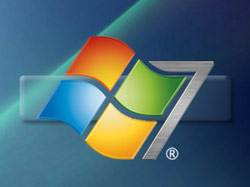Focus on Windows 7 is more intense than ever, now that Microsoft has confirmed the “Family Pack” and has announced a precise timeline when Windows 7 RTM will be roiled out ( it all depends on who you are – details here). On top of that the Redmond-based software giant has made available to the general public a document detailing the upgrade paths for Windows 7. Just as expected, Windows 7 RC (Release Candidate) is not supported. For RC users, upgrading to Windows 7 Final is possible if they purchase an upgrade Windows 7 disk, but the catch is that this is not an “in-place upgrade,” it is a “custom installation” as Microsoft calls it (details here).
The document in question (it is actually a .doc) is entitled Windows 7 Upgrade Paths and is available for download straight from Microsoft here. I’ve gone through it and here is the most relevant data included in it.
Supported upgrade scenarios
Vista Business -> Professional, Enterprise, Ultimate
Vista Enterprise -> Windows 7 Enterprise
Vista Home Basic -> Windows 7 Home Basic, Home Premium, Ultimate
Vista Home Premium -> Windows 7 Home Premium, Ultimate
Vista Ultimate -> Windows 7 Ultimate
Windows 7 Enterprise -> Windows 7 Enterprise
Windows 7 Home Basic -> Windows 7 Home Basic
Windows 7 Home Premium -> Windows 7 Home Premium
Windows 7 Professional -> Windows 7 Professional
Windows 7 Starter (x86 only) -> Windows 7 Starter (x86)
Windows 7 Ultimate ->Windows 7 Ultimate
Windows 7 Home Basic -> Windows 7 Home Premium, Professional, Ultimate ( Windows Anytime Upgrade )
Windows 7 Home Premium -> Windows 7 Professional, Ultimate (Windows Anytime Upgrade)
Windows 7 Professional -> Windows 7Ultimate (Windows Anytime Upgrade)
Windows 7 Starter -> Windows Home Premium, Professional, Ultimate (Windows Anytime Upgrade)
Unsupported upgrade scenarios
The following Windows-based operating systems cannot perform an in-place upgrade to Windows 7: Windows 95, Windows 98, Windows Millennium Edition, Windows XP, Windows Vista® RTM, Windows Vista Starter, Windows 7 M3, Windows 7 Beta, Windows 7 RC, or Windows 7 IDS, Windows NT® Server 4.0, Windows 2000 Server, Windows Server® 2003, Windows Server 2008, or Windows Server 2008 R2.
Other unsupported upgrade paths include upgrading from an x86 (32-bit) architecture to x64 (64-bit), upgrading from one language version to another language version, cross-SLU upgrades, cross-build type in-place upgrades, pre-release in-place upgrades (from Windows 7 RC to RTM).
The document in question (it is actually a .doc) is entitled Windows 7 Upgrade Paths and is available for download straight from Microsoft here. I’ve gone through it and here is the most relevant data included in it.
Supported upgrade scenarios
Vista Business -> Professional, Enterprise, Ultimate
Vista Enterprise -> Windows 7 Enterprise
Vista Home Basic -> Windows 7 Home Basic, Home Premium, Ultimate
Vista Home Premium -> Windows 7 Home Premium, Ultimate
Vista Ultimate -> Windows 7 Ultimate
Windows 7 Enterprise -> Windows 7 Enterprise
Windows 7 Home Basic -> Windows 7 Home Basic
Windows 7 Home Premium -> Windows 7 Home Premium
Windows 7 Professional -> Windows 7 Professional
Windows 7 Starter (x86 only) -> Windows 7 Starter (x86)
Windows 7 Ultimate ->Windows 7 Ultimate
Windows 7 Home Basic -> Windows 7 Home Premium, Professional, Ultimate ( Windows Anytime Upgrade )
Windows 7 Home Premium -> Windows 7 Professional, Ultimate (Windows Anytime Upgrade)
Windows 7 Professional -> Windows 7Ultimate (Windows Anytime Upgrade)
Windows 7 Starter -> Windows Home Premium, Professional, Ultimate (Windows Anytime Upgrade)
Unsupported upgrade scenarios
The following Windows-based operating systems cannot perform an in-place upgrade to Windows 7: Windows 95, Windows 98, Windows Millennium Edition, Windows XP, Windows Vista® RTM, Windows Vista Starter, Windows 7 M3, Windows 7 Beta, Windows 7 RC, or Windows 7 IDS, Windows NT® Server 4.0, Windows 2000 Server, Windows Server® 2003, Windows Server 2008, or Windows Server 2008 R2.
Other unsupported upgrade paths include upgrading from an x86 (32-bit) architecture to x64 (64-bit), upgrading from one language version to another language version, cross-SLU upgrades, cross-build type in-place upgrades, pre-release in-place upgrades (from Windows 7 RC to RTM).

























